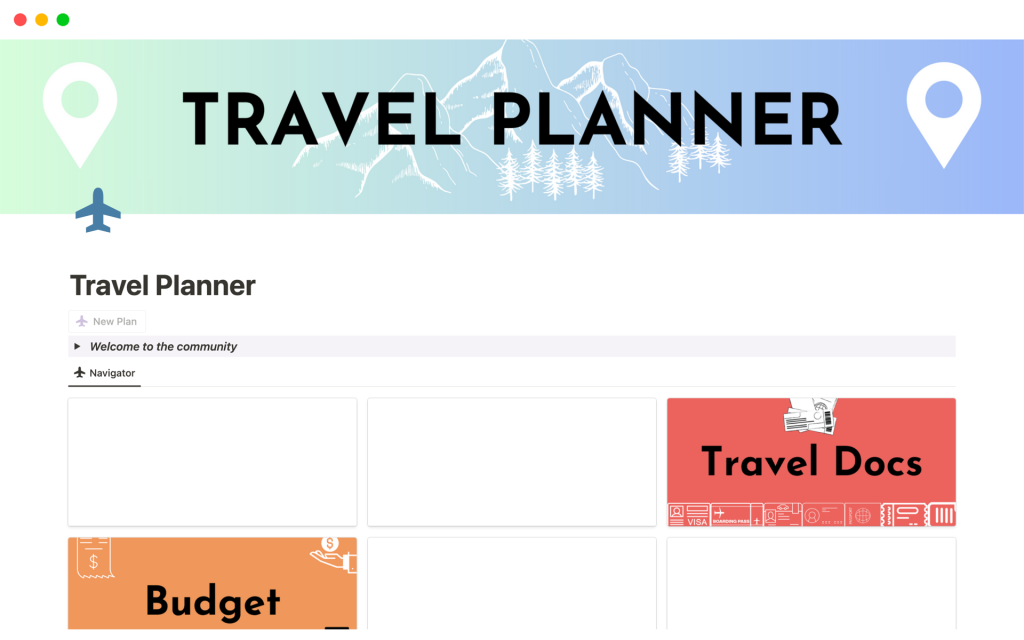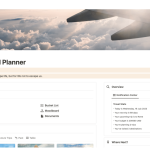Enhance Your Travel Planning Experience: Click Here For Expert Tips And Advice!
Travel Planning Experience: A Guide to Seamless Adventures
Greetings, Readers!
Planning a trip can be an overwhelming task, but with the right strategies and resources, it can also be an exciting and rewarding experience. In this article, we will delve into the ins and outs of travel planning, providing you with valuable tips and insights to ensure your adventures are seamless and unforgettable.
3 Picture Gallery: Enhance Your Travel Planning Experience: Click Here For Expert Tips And Advice!



Introduction
1. What is Travel Planning?
Travel planning refers to the process of organizing and arranging various aspects of a trip, including transportation, accommodations, activities, and budgeting. It involves careful research, decision-making, and coordination to create a tailored itinerary that suits your preferences and ensures a smooth travel experience.

Image Source: medium.com
2. Who Should Engage in Travel Planning?
Travel planning is relevant to anyone who wishes to embark on a journey, whether it’s a solo trip, family vacation, or group adventure. It enables individuals to customize their travel experiences based on their interests, budget, and desired level of comfort.
3. When Should You Start Planning?

Image Source: ctfassets.net
The ideal timeframe for travel planning depends on various factors such as the destination, duration of the trip, and the availability of accommodations and attractions. Generally, it is recommended to start planning at least several months in advance to secure the best deals and ensure availability.
4. Where Can You Seek Travel Planning Information?
There are numerous resources available to aid in travel planning. Online platforms such as travel websites, blogs, and forums offer a wealth of information on destinations, accommodations, attractions, and travel tips. Additionally, guidebooks, travel agencies, and local tourism offices can provide valuable insights and assistance in planning your itinerary.
5. Why is Travel Planning Important?

Image Source: notion.so
Travel planning allows you to make the most of your trip by maximizing your time, budget, and experiences. It helps you avoid unnecessary stress, last-minute decisions, and unexpected expenses. By planning ahead, you can ensure that you visit the attractions you desire, stay within your budget, and create a well-rounded itinerary.
6. How Can You Plan Your Travel Effectively?
Efficient travel planning involves several key steps:
– Research: Gather information about your destination, including attractions, accommodations, transportation options, local customs, and safety considerations.
– Set a Budget: Determine how much you are willing to spend on accommodations, transportation, meals, activities, and souvenirs. Allocate your budget accordingly to avoid overspending.
– Create an Itinerary: Outline the places you want to visit, the activities you wish to engage in, and the duration of your stay in each location. Consider transportation logistics and factor in some flexibility.
– Make Reservations: Book your accommodations, flights, and any other necessary reservations well in advance to secure availability and favorable rates.
– Pack Wisely: Prepare a packing list based on the climate, activities, and duration of your trip. Pack essentials while keeping in mind luggage restrictions.
– Stay Organized: Keep all travel-related documents, such as passports, visas, and reservation confirmations, in one place. Make copies of important documents and store them separately.
Advantages and Disadvantages of Travel Planning
1. Advantages:
– Personalized Experience: By planning your travel, you can tailor your itinerary to suit your interests and preferences, ensuring a unique and enjoyable experience.
– Cost Control: With careful budgeting and research, travel planning allows you to manage your expenses, making it possible to find affordable accommodations, activities, and dining options.
– Time Optimization: Planning ahead enables you to make the most of your limited time by prioritizing attractions and minimizing time wasted on unnecessary detours or waiting in queues.
– Comfort and Safety: Planning allows you to book reliable accommodations and transportation options, ensuring a comfortable and secure travel experience.
– Anticipation and Excitement: The planning process itself can be thrilling, as you research your destination, learn about its culture, and look forward to the adventures that await you.
2. Disadvantages:
– Rigidity: Strictly adhering to a planned itinerary may limit your flexibility and spontaneity, leaving little room for unexpected discoveries or serendipitous experiences.
– Information Overload: The abundance of travel resources can be overwhelming, making it challenging to filter through the information and make well-informed decisions.
– Stress and Pressure: Planning a trip can sometimes induce stress, particularly when faced with numerous options, time constraints, and the fear of missing out on key attractions.
– External Factors: Despite thorough planning, unforeseen circumstances such as weather conditions, transportation delays, or sudden closures can disrupt your travel plans.
– Unrealistic Expectations: Excessively detailed planning may lead to unrealistic expectations, causing disappointment if things don’t go exactly as planned.
Frequently Asked Questions (FAQ)
1. Is travel planning necessary for all types of trips?
Absolutely. Whether you’re going on a short weekend getaway or an extended international adventure, travel planning helps ensure a smoother and more enjoyable experience.
2. Can I plan a trip on a tight budget?
Yes, travel planning allows you to identify affordable options and make informed choices to accommodate your budgetary constraints.
3. How can I find reliable travel resources?
Look for reputable travel websites, read reviews from fellow travelers, and consult official tourism websites to gather trustworthy information.
4. Should I plan every minute of my itinerary?
While it’s important to have a general plan, allow for some flexibility to embrace unexpected opportunities and serendipitous experiences.
5. How can I deal with unexpected changes or disruptions?
Stay calm, have backup plans, and be prepared to adapt. Remember that even the best-laid plans can sometimes go awry, but it’s all part of the adventure.
Conclusion
In conclusion, travel planning is an essential aspect of any journey, enabling you to create a personalized itinerary, manage your budget, and optimize your time. While it requires effort and research, the rewards far outweigh the challenges. So, start planning your next adventure and embark on a seamless and unforgettable travel experience!
Safe travels, Friends!
Final Remarks:
Travel planning may seem like a daunting task, but with the right approach and resources, it can be an enjoyable and fulfilling experience. Remember to stay organized, be flexible, and embrace the unexpected. The information provided in this article serves as a guide to help you navigate the intricacies of travel planning. However, it is important to conduct thorough research and consult reliable sources for specific details related to your destination. Happy travels!
This post topic: Travel Planning

